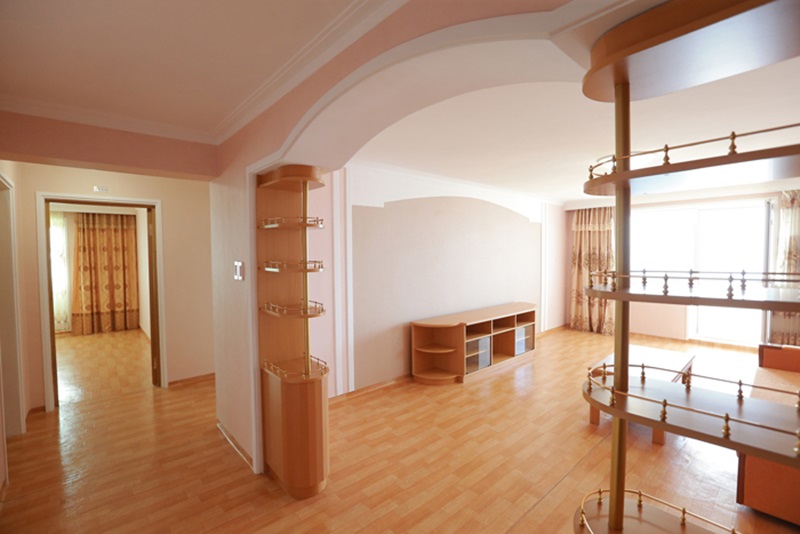
Amidst North Korea’s trade deficits, the slowing market economy, and other indicators that the country’s economy is stagnating, sources in the country report that apartment construction in some parts of North Korea has slowed.
“The construction of apartments in Pyongsong has slowed down compared to the past It looks like they’re being built in Okjon, Jungdok, Yangji and Eundok, but, in reality, not as many are being built as in the past,” a source in South Pyongan Province told Daily NK.
“Construction of apartments, factories and roads typically picks up in the spring, but this year that’s not the case. There’s barely any apartments being built.”
DonjuLiterally "masters of money," donju refers to people who hav... More (North Korea’s nouveau riche) typically sign contracts with state agencies and provide the investment to build apartments. They can earn up to 30-40% in profit from the construction of one apartment building.
Apartments have become a government-protected, profit-making racket for donjuLiterally "masters of money," donju refers to people who hav... More. Recently, however, donjuLiterally "masters of money," donju refers to people who hav... More have begun to turn their focus away from apartment construction because they believe it’s not profitable anymore.
International sanctions have had an impact, large and small, on the apartment construction market.
“Cement, metal poles, wood, gravel, and sand are required to make apartments, and these materials have not been impacted that much by sanctions,” said the source. “However, North Korea is completely reliant on the outside world for diesel and other kinds of fuel and these resources have been impacted by the sanctions.”
North Koreans have experienced a fall in purchasing power and this is considered another factor in the stagnation of the apartment construction market. DonjuLiterally "masters of money," donju refers to people who hav... More have been the major consumers of apartments but their lack of foreign currency means they are not buying apartments as much anymore.
“People are not buying apartments anymore because they don’t have a lot of money to spare,” the source said. “An apartment buyer typically pays for half of an apartment as its being built, but there’s few people buying apartments these days.”
The fall in demand for apartments has led to a fall in housing prices. “Housing prices were at their most expensive from 2012 to 2016 but the prices are continuing to fall,” the source said.
“There’s a rise in people who are selling their own houses to acquire seed money to start their own businesses, and there’s also a lot of people who have put their houses up for sale without being able to pay back the loans they took out to pay for the houses in the first place. These factors are causing housing prices to fall,” said a separate source in South Pyongan Province.
“Families who lived apart are now living together because of the lack of money to pay for separate houses, and this has been an additional factor in housing prices decreasing.”
The Daily NK found that apartment prices in Pyongsong, which is the site of North Korea’s largest wholesale market, had fallen by half compared to last year.
Houses in Pyongsong’s outskirts are going for around 5,000 USD, while those in the area’s agricultural region are selling for around 1,000 USD. These prices are around half of the 8,000 USD and 2,000 USD houses in these areas were selling for last year.
Pyongsong’s city center has also witnessed a drastic decrease in housing prices. An apartment in Pyongsong’s Yokjon district went for 100,000 USD early last year, but fell to 50,000 USD late last year and now, despite selling for 30,000 USD, nobody is buying.
North Koreans are pessimistic toward the future of the apartment construction market, an additional source in the region said, concluding that “apartments will continue to be built but, at least for the time being, at a much slower rate.”




















